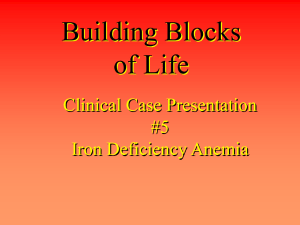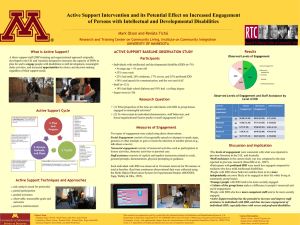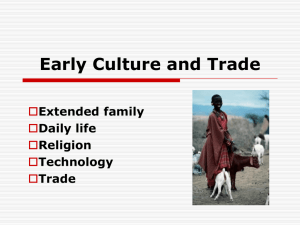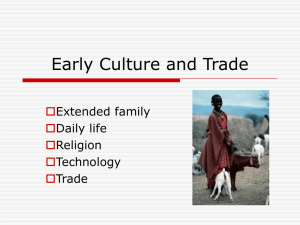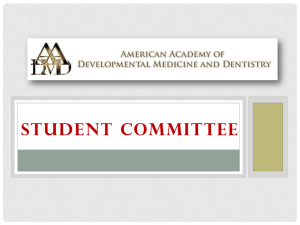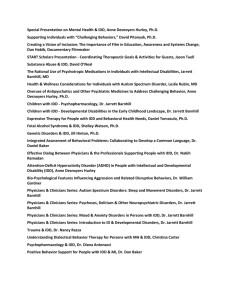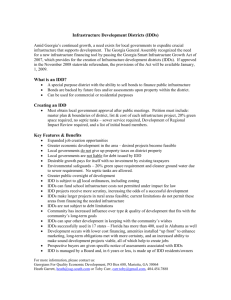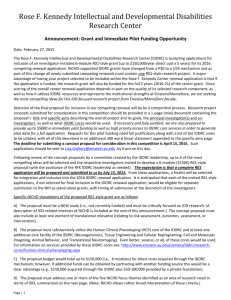Nutritional problems
advertisement
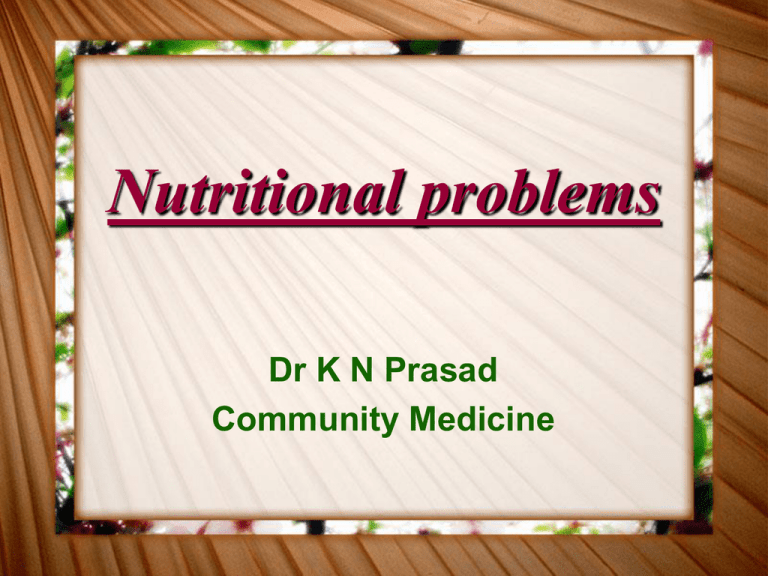
Nutritional problems Dr K N Prasad Community Medicine Xeropthalmia Common cause for blindness in SEA Commonly affected are children below the age of 3 years Risk factors are – low SES, Ignorance, faulty feeding practices, Acute diarrhoea, Measles, bottle feeding Common in rice eating population Prevention and control Short term action: Large dose of Vitamin A orally on periodic basis to vulnerable group. Two lakhs IU Retinol Palmitate in oil for children less than 6 years of age once in 6 months. Children less than 1 year will get one Lakh IU of RP Prevention and control Medium term action: Regular and adequate intake of Vitamin A rich foods, Food fortification with Vitamin A ex. Vanaspathi, Margarine oil, dried mild powder, sugar. Prevention and control Long term action: Education opportunities: General population, pregnant and lactating mothers about consumption of dark GLV, Promotion of breast feeding, improvement in environment health, immunisation against measles, improved health services for MCH Nutritional Anemia A disease syndrome caused by malnutrition Commonly called as Iron deficiency WHO standard – Hb level estimation Adult male – 13 gm% Adult Female non pregnant- 12gm% Pregnant woman- 11gm% Children < 6 years- 11gm% Children 6-14 years- 12gm% Global problem of Anemia Prevalence is highest in developing countries Child bearing age group is highest burden other than children Two third of pregnant women and half of non pregnant women are anemic in developing countries 4-12% of child bearing women are anemic in developed countries India Many have iron deficiency other than anemia Rural population both Male and female are susceptible Common cause is inadequate intake , poor bioavailability and excess loss of iron Infections – Malaria, Hook worm, etc. Short interval between pregnancies Folic acid deficiency is accounting for 50-70% of population Detrimental effect of Anemia Pregnancy- increased risk of Mortality and morbidity ( 40% ) Aggravate by infections and susceptible to infections Decreased working capacity Decreased economy of the country Interventions Iron & Folic acid supply: under National Program for Nutritional anemia daily supplementation of IFA to prevent mild and moderate anemia. Beneficiaries : Pregnant & Lactating mothers , children below 12 year sof age Eligibility : Hb< 12gm% , refer to Hospital if Hb<10gm% Dose: Each Tab contains 80 mg of elemental iron ( 200mg Fe sulphate ) and 0.5mg of Folic acid Duration: 2-3 months Hb returns to normal Follow up: estimate Hb after 3 months Children: if anemia supplement 20mg of elemental iron ( 100mg Fe Sulphate) Iron Fortification Fortification to salt is tried Recommended for high risk group in the endemic area Other measures Changing dietary habits Control of parasitic infections Nutrition education Iodine deficiency disorders (IDD) Equivalent to Goitre Major nutritional problem in India Deficiency leads to wide range of disorders commencing from Intra uterine life to childhood , adult life with serious health and social implications. Public health problem of IDD Major problem in SEA Common In Himalayan region known as Goitre belt IDD is common everywhere in India No state is free from IDD 1960- 9 million Present- 130 million have IDD Clinical manifestations are wide. Control of IDD Iodised salt and Oil Monitoring and surveillance Manpower training Mass campaign Iodised salt and Oil Iodised salt is widely used in India Recommended concentration is not less than 30 PPM at production level Not less than 15 PPM at consumer level Non iodised salt is completely banned for sale IM injection of Iodised oil 1 ml for high risk group individuals Iodised oil Protection for 4 years Replace salt with iodised salt Monitoring Neonatal hypothyroidism is a sensitive indicator for community IDD Laboratory test for iodine excretion determination Determination of iodine in drinking water , soil and food Determination of iodine in salt for quality assessment. Mass campaign Public awareness about IDD Use of only iodised salt for regular consumption Thought for the day Asking for help is a strength not weakness Thank you
